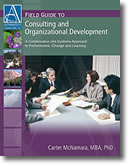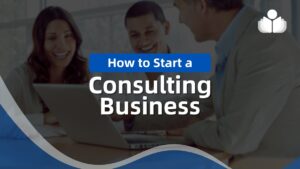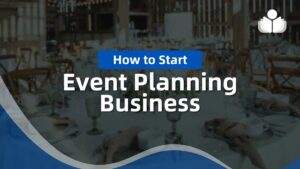© Copyright Carter McNamara, MBA, PhD, Authenticity Consulting, LLC
Many people have the mistaken impression that consultants are people who primarily give expert advice to solve problems for their clients. However, a much more accurate description is given by Peter Block in his seminal book, Flawless Consulting. Block explains that a consultant is someone in a role to help another person, team, or organization to change, but who has no authority to make them change. Thus, a consultant can be an advisor, trainer, coach, or facilitator.
This topic provides the guidelines and resources for doing consulting. However, you cannot develop skills in consulting, unless you actually practice applying that new information.
Sections of This Topic Include
Internal / External Consulting
- What is a Consultant, Really?
- Continuum of Roles
- Types of Consultants
- Overall Goals of Consultants
- Professionalism in Consulting
Different Approaches in Consulting
- Phases in Consulting and Solving Complex Problems
- Examples of Phases in Consulting and Solving Complex Problems
- How Consultants Customize Their Approaches
- Example of an Approach to Consulting: Collaborative Consulting
Resources for Externals Starting a Consulting Business
Test Your Knowledge of the Field of Consulting
Take this online quiz.
Also, consider
Related Library Topics
Learn More in the Library’s Blog Related to Consulting and Hiring Consultants
In addition to the articles on this current page, also see the following blog that has posts related to Consulting and Hiring Consultants. Scan down the blog’s page to see its various posts. Also, see the section “Recent Blog Posts” in the sidebar of the blog or click on “Next” near the bottom of a post in the blog. The blog also links to numerous free related resources.
Library’s Consulting and Organizational Development Blog
PROFESSION OF CONSULTING
What is a Consultant, Really?
| See a video about an overview of methods of advising, coaching, and facilitating; which methods to use and when; when to switch methods; and major myths about consulting. From the Consultants Development Institute. |
Misunderstandings About Consultants
As mentioned above, a consultant is someone in a role to help another person, team, or organization to change, but who has no authority to make that change happen. There are many myths and misunderstandings about consulting, the most common of which is that consultants always provide expert advice to solve “problems”.
Actually, a consultant might use many different styles, approaches, and methods, depending on the nature of the client and the focus of the consulting project.
- 10 Myths of Management and Organizational Consulting Part 1
- 10 Myths of Management and Organizational Consulting Part 2
Continuum of Roles of Consultants
Roles can range along a continuum from that of an expert who gives ongoing advice to that of a coach or facilitator who supports a person or group with ongoing reflective questions to bring out their own wisdom and apply it.
Thus, consultants can act in the role of (alphabetically):
- Coach – helping individuals to clarify and achieve a goal by helping them to bring out and apply their own wisdom.
- Collaborator/partner – working with another to benefit from the mutual relationship.
- Educator/trainer – helping others especially to develop new knowledge, skills, and insights.
- Expert – providing specific information and expertise in specific areas.
- Facilitator – helping members of a group to clarify their desired goals and how they want to achieve them — and then helping them to bring out and apply their own wisdom to achieve the goals (thus, a coach who is coaching a group also works in a very facilitative manner).
- Problem solver – helping others to clarify their problems and then helping them to “solve” them.
- Researcher – collecting, organizing, analyzing, and reporting information for others.
Other roles might include analyst, synthesizer, impartial observer, critic, friend, and mentor.
NOTE: The manner in which consultants work in these roles can vary widely.
See How Consultants Customize Their Approaches.
When Consultants Should Facilitate, Coach or Train
Types of Consultants and Their Services
| See a video about definitions, types of consultants, primary goals of consultants, identifying real clients, and differences between internal and external consultants. From the Consultants Development Institute. |
It is useful to know the general types of consulting services because they are often used to categorize, for example, advertisements, catalogs of training programs, and tracking statistics about consultants. Consultants might use roles ranging from the expert to the facilitator in any of the following categories depending on the nature of the client and the focus of the consulting project.
Types of Services
Private Practice Consultants
They focus on professional services, for example, counseling and coaching, that includes helping others with individual and professional development. They work in a highly facilitative and collaborative manner with their clients, and in a highly confidential relationship, as well. (The term “private” is often used to suggest that the consultants are working as independent consultants. However, it can also apply to the strong requirement for confidentiality in the nature of their work.)
(Note that the above use of the terms counseling and coaching refer to services that are delivered in a carefully designed relationship in order to accomplish significant personal goals with the client. This is in contrast to an informal counseling and coaching activity in which a person offers advice or thoughtful questions in a spontaneous conversation.)
Technical Consultants
They provide highly specialized content and expertise regarding certain specific systems and processes in the organization, for example, information technology and business analysis. The types of services provided by these consultants are often referred to as technical assistance.
Management Consultants
They help leaders and managers to be more productive in the practices of planning, organizing, leading, and coordinating resources in the organization. For example, they can help with practices in strategic planning, financial management, and personnel management. They might work in an expert role while training others about best practices and then in a facilitator role when supporting others to apply those practices.
Organizational Development Consultants
They help organizations improve performance in a significant portion of the organization or in the entire organization itself. They might use a wide variety of approaches, for example, training about best practices in accomplishing successful change, facilitating groups of leaders to plan the change, and informal coaching conversations to maintain momentum during the change.
Many people assert that there is a difference between the phrases “organizational development consultants” and “Organization Development consultants.” They would use the latter phrase to refer to consultants who consider themselves to be working in the field of Organization Development.
Types Can Overlap
Each type of consultant might be needed at various times in a project. For example, an organizational development consultant might work with various groups to identify the most important problems to address in an organization. Then management consultants might train various managers about the best practices needed to address the problem, for example, strategic planning, management by objectives, and supervision. Concurrently, a professional coach might coach the chief executive officer through the challenges of dealing with a major change.
- Overview of the Field of Organization Development
- Competencies and Resources for Organizational Change Agents
- Guidelines, Methods, and Resources for Organizational Change Agents
Nature of Expertise
Generalists and Specialists
Whether the consultants are generalists or specialists depends on the nature of their services. The more specific the nature of their services, for example, information technology or market research, the more likely they would be referred to as specialists.
Many people would consider private practice and technical consultants to be specialists. They have rather unique and extensive expertise, such as in medicine, counseling, and coaching — even though they can often vary widely in how they provide their services.
Many people would consider management and organizational development consultants to be generalists, although both types might use a mix of specialist and generalist expertise, especially when working on complex projects.
Context of Their Services
An external consultant is not a full- or part-time employee of the client’s organization and instead works independently to serve a number of different clients. In contrast, an internal consultant is a part- or full-time employee in the client’s organization. It is very useful to know the typical differences between the two, especially in terms of how they are viewed by their clients and the different parameters in their roles.
Internal Compared to External Consultants
Overall Goals of Professional Consultants
To know the overall, recurring goals of professional consultants, regardless of their type, we again defer to Block. He suggests that the following goals be primary for professional consultants, especially if they are often working to help others accomplish significant change.
- Establish a collaborative relationship with your clients.
As a consultant, you should work with your clients as if you are peers working as a team. Working in a collaborative fashion with your clients helps you ensure that recommendations — generated from you and/or the client — are accurate, that clients follow the recommendations, and that they adopt the necessary changes as needed. - Solve problems so your clients can solve them later themselves.
The approach to solving the problem in the project should always involve your client’s learning about what is being done and why, so your client can very likely repeat the approach as much as possible after you are gone. - Ensure equal attention to solving the problem and your relationship with your client. The quality of the relationship between you and your client is a reliable predictor of the quality of the outcome of the project. Clients often judge projects, not only by their outcomes but also by the quality of their working relationship with the consultant.
What Should Be the Primary Goals of Consultants?
Professionalism in Consulting
Professional consultants should always adhere to certain principles and ethics in their work, as well as continually developing themselves as individuals and consultants. The following resources provide numerous guidelines to help you as a professional.
| See a video about principles for successful consulting, defining “success”, principles for ethical consulting, managing risks and liabilities, and knowing when to leave. From the Consultants Development Institute. |
- Are You a Professional?
- Professional Development
- Developing Your Professional Mission and Values
- Working on Ourselves, as Consultants
- Principles for Effective Consulting
- How to Maintain Proper Boundaries
- How to Minimize Legal Liabilities and Risks
- Guide to Ethics Management
- How to Work in Multicultural Environments
DIFFERENT APPROACHES IN CONSULTING
Phases in Consulting Projects
All Consultants Follow General Phases in Their Consulting – Just Differently
All professional consultants tend to follow a general design or framework, in their consulting that includes a general sequence of cyclical and highly integrated phases. Phases often include, for example, a start-up or contracting phase that clarifies the project’s goals and roles, then specifies the actions to achieve the goals, then implements the actions, and then does a final project evaluation.
Very Different Styles in Going Through the Phases
However, different consultants might go through the same general phases very differently along a continuum of styles. At one end are consultants who prefer clearly delineated beginning and ending points for each phase, as well as specific kinds of sequential deliverables within them. They might see themselves as leading in all aspects of the project. Technical consultants often prefer this kind of approach to ensure that the project activities closely conform to the steps needed to successfully install the technical systems or practices, such as installing computer systems and conducting market research.
At the other end, are consultants who, along with the client, co-create the content within each phase as well as the activities within each. They might not see themselves as working within phases, at all, but rather engaging in a highly collaborative dialogue in which the goals, roles, and actions are continually unfolding from the relationship itself. Examples along this half of the continuum might include coaching,
process consultation, Dialogic Organization Development, collaborative consulting, whole systems change, and Theory U.
The various styles in going through the phases depend on a variety of factors that are explained in the next section, “How Consultants Customize Their Approaches”.
Examples of Phases in Consulting
- Five Phases of Consulting
- The Phases of Consulting
- Five Phases of Organization Development
- Management Consulting Cycle
- Consulting Process Models
How Consultants Customize Their Approaches
Depends on the Type of Consultant
If they are private practice consultants, then they probably are specialists in their particular profession, which often requires certification or licensure in the profession. However, they very often use highly collaborative and facilitative approaches with their clients.
If they are technical consultants, then they probably are specialists whose work is often highly specific and procedural in nature. Thus, they might mostly offer expert advice and be rather predictable in how they work.
If they are management and organizational development consultants, then they probably are a mix of specialists and generalists. They might use a variety of approaches ranging from offering expert advice to conducting spontaneous coaching conversations.
Depends on Their Training
Their approach to their work depends on their training in a certain philosophy and associated model. For example, coaches might use a specific model focused on life coaching or performance coaching. Trainers might use a certain model to design their curriculum, such as ADDIE or SAM. Managerial consultants might specialize in a certain practice, such as leadership development or strategic planning. Organizational consultants might focus on a certain organizational performance model, such as management by objectives or the Balanced Scorecard.
Depends on the Nature and Needs of Their Clients
However, all professional consultants should be able to accommodate the nature of the individual client and the culture of the client’s organization. For example, some clients learn especially from frequent interaction with the consultant. Others prefer frequent time alone to reflect and re-energize themselves.
Some organizations are clearly and consistently structured in how they operate, including how they make decisions and solve problems. Decisions require extensive communication and formal approval. Other organizations are more adaptable and decentralized. Decisions require discussions and consensus.
Also, see How to Choose Which Strategies (Interventions) to Use for Change.
Example of an Approach to Consulting: Collaborative Consulting
The collaborative consulting process is based on the work of psychologists Carl Rogers, Peter Block, and others. It is not a specific model as much as a mutual way of working through the general process for the consultant and client during a consulting project. This type of process is widely used in consulting to solve complex problems and achieve major goals in organizations.
Collaborative Consulting for Performance, Change, and Learning
One version of the process includes the following general sequence of phases. They are highly integrated and often cyclical in nature.
- Guidelines and Resources for the Contracting Phase of Consulting
- Guidelines and Resources for the Discovery Phase of Consulting
- Guidelines and Resources for the Action Planning Phase of Consulting
- Guidelines and Resources for the Implementation Phase of Consulting (see Note 1)
- Guidelines and Resources for the Project Evaluation Phase of Consulting
- Guidelines and Resources for the Termination Phase of Consulting
Note 1. If the focus of the consulting is on accomplishing significant change in an organization, then the Implementation Phase should be embellished with
Guidelines, Methods, and Resources for Organizational Change Agents
Resources for Starting a Consulting Business
This topic assumes that you already have some expertise that you could provide to clients in exchange for a fee and that you also have a good understanding of a consulting process as described in this overall topic, and that you also are thinking about starting a business to be a professional consultant. The guidelines in this topic are focused on helping you to start a new organization or expand a current organization.
Are You Really an Entrepreneur?
- Are You Really an Entrepreneur?
- Preparation for Starting a New Venture
- 10 Tips To Become a Small Business Consultant
- So You Want to Be a Consultant?
- How to Become a Consultant: 9 Steps to Doing it Right
- 10 Steps to Become a Self-Employed Consultant
Developing Your Organization
Starting a New One?
- Should You Start a For-Profit or a Nonprofit?
- Starting a For-Profit Organization
- Starting a Nonprofit Organization
- How To Get Started In Consulting
Planning Your New Organization
Deciding the Legal Structure of Your New Organization
U.S. Enterprise Law — Forming Organizations
Or Expanding a Current Organization?
Or Starting a New Product or Service?
Marketing Your Services, Getting Clients
Marketing Your Organization, Product, or Service
- Social Networking
- Need Clients? The 5 Best Ways to Market Your Consulting Business
- How to Promote Your Consulting Business
- Word of Mouth Marketing for Consultants
- 5 Common Myths About Marketing Your Consulting Business
Sales — Getting and Keeping Clients
- Sales
- Close More Business (Get More Clients)
- Customer Service
- Customer Satisfaction
- Close More Business (Get More Clients)
- Bouncing Back After Losing a Big Client
- How to Successfully Hire and Work With an Excellent Consultant
Proposals and Contracts
Responding to Request for Proposals
You might develop a request for proposal (RFP) and provide it to many potential consultants, asking them to respond with proposals. This section will be helpful when developing an RFP.
- Best Standard Process for Responding to RFPs
- 10 Things You Need to Know When Responding to an RFP
- How to respond to an RFP with no fear
- Red-Hot Tips on How to Respond to an RFP and Win that Deal
Proposals
Consultants usually respond to RFPs with a proposal that specifies how they can meet the requirements in the RFP.
- How to Write a Proposal: The Last Guide You’ll Ever Need
- Guidelines for Writing Project Proposals
- Anatomy of a proposal
- How to Write a Proposal As a Consultant
Contracts
See Guidelines and Resources for the Contracting Phase of Consulting
Some Challenges in a Consulting Business
Fees and Getting Paid
- Set Your Consulting Fees Using These 5 Tried-and-True Methods
- How to Make Sure You Always Get Paid as a Freelancer or Consultant
- Is It Time to Consider a Fixed Fee for Your Consulting Services?
- Consultant’s Crack the Billable Hour Ceiling
Dealing With Clients
- Types of Clients (to answer a critical question: “Who is your current client?”)
- How to Fire Bad Clients
- Defining Success Between Consultants and Clients
When to Bail from a Project
When to Bail from a Consulting Project
Minimizing Risk
- When Should Consultants Buy Liability Insurance?
- Minimize Consulting Liabilities and Risk
- Risk Management
Staying Centered as a Consultant
Test Your Knowledge of the Field of Consulting
Take this online quiz.
To Develop Your Consulting Skills
It is not enough to just have strong interpersonal and technical skills to be a highly competent consultant. You also need consulting skills.
Why Consulting Skills?
There are many resources from which consultants can start and market a consulting business. However, there are very few programs in which consultants can further develop their skills to solve problems or achieve goals in the clients’ organizations. Consider the following resource, the
Consultants Development Institute
For the Category of Organization Development:
To round out your knowledge of this Library topic, you may want to review some related topics, available from the link below. Each of the related topics includes free, online resources.
Also, scan the Recommended Books listed below. They have been selected for their relevance and highly practical nature.
 Sections of this topic
Sections of this topic

















